There’s nothing quite like hitting the off-road trails and exploring the great outdoors with your trusty vehicle. But before you begin on your next adventure, make sure your rig is equipped with the right gear – including a reliable off-road towing hitch. In this guide, we will cover everything you need to know about off-road towing hitches, from choosing the right type for your vehicle to important maintenance tips. So buckle up, and let’s examine the world of off-road towing!
Key Takeaways:
- Off-road towing hitch is specifically designed to withstand the rigorous demands of towing on challenging terrains and rough roads.
- Heavy-duty construction and durable materials are imperative for off-road towing hitches to ensure reliable performance under extreme conditions.
- Proper installation and maintenance of off-road towing hitches are crucial for safe and effective towing operations on off-road trails.
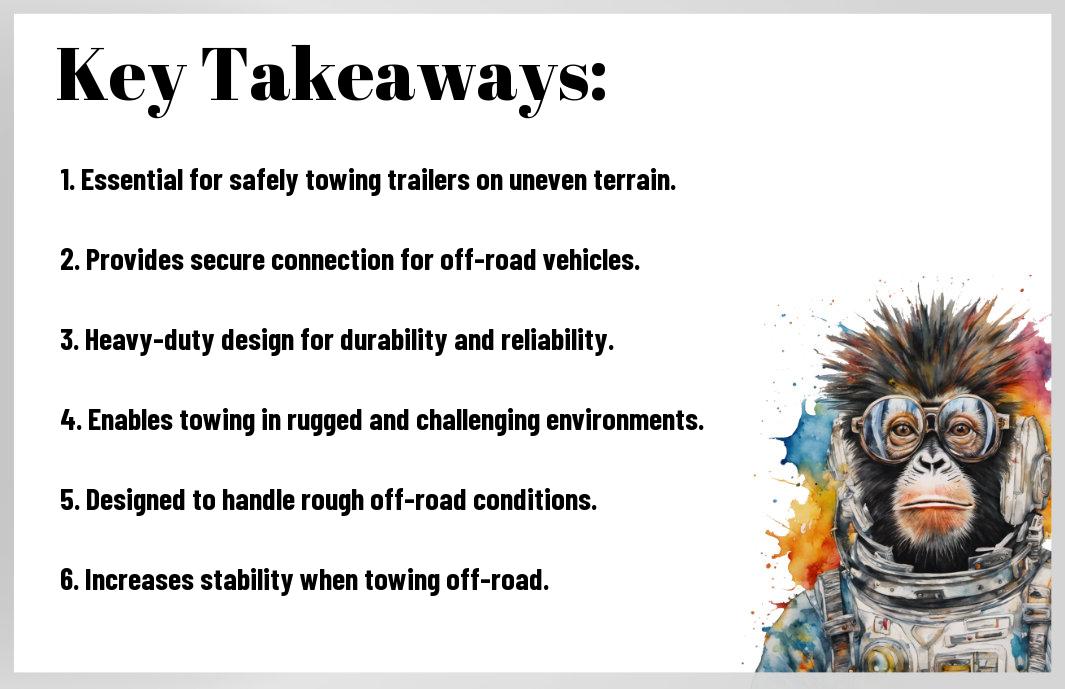
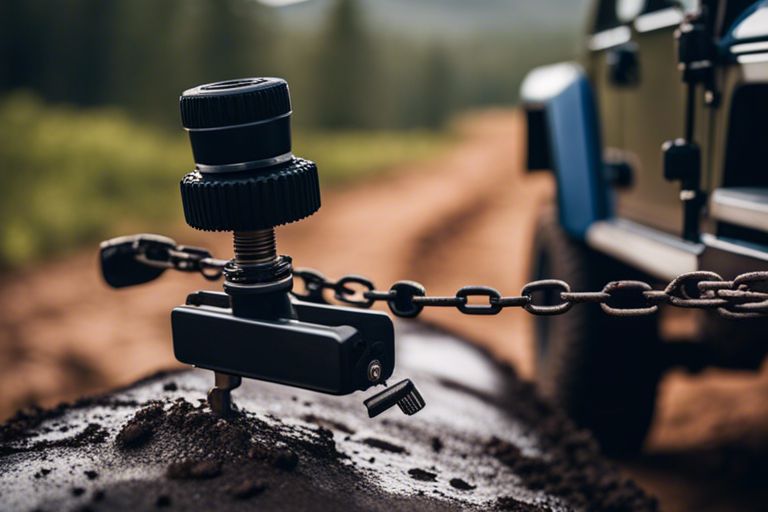
What is an Off Road Towing Hitch?
While you may be familiar with standard towing hitches, an off-road towing hitch serves a specific purpose for those who love to venture off the beaten path. This type of hitch is designed to withstand the rigors of rough terrain, allowing you to tow trailers and equipment through challenging off-road conditions without worrying about damage or detachment.
Definition and Purpose
Any off-road towing hitch is built tougher and more robust compared to regular towing hitches. It is usually constructed from heavy-duty materials such as steel and equipped with reinforced connection points to ensure maximum strength and durability. The purpose of an off-road towing hitch is to provide a secure and reliable attachment point for your trailer or equipment while navigating rough and uneven terrain.
Furthermore, off-road towing hitches often feature additional components like skid plates or integrated recovery points to enhance their functionality in off-road situations. These hitches are engineered to handle the unpredictable conditions you may encounter while exploring remote trails or working in off-road environments, giving you peace of mind during your off-road adventures.
Importance of a Reliable Hitch
Importance cannot be stressed enough when it comes to choosing a reliable off-road towing hitch. A sturdy hitch not only ensures the safety of your cargo but also provides you with the confidence to tackle challenging off-road obstacles without worrying about equipment failure. Investing in a high-quality off-road towing hitch can make a significant difference in your off-road towing experience, allowing you to focus on enjoying the journey ahead.
Hitches suitable for off-road use are specially designed to handle the jolts, vibrations, and lateral forces that come with traversing uneven terrain. By choosing a reliable off-road towing hitch, you are prioritizing the safety of your equipment, your vehicle, and yourself, making it an necessary accessory for any off-road enthusiast.
Types of Off Road Towing Hitches
If you are in the market for an off-road towing hitch, understanding the different types available is crucial. Here are the main types of off-road towing hitches to consider:
- In the first column, you have Receiver-Style Hitches, which are the most common type of towing hitch. They are versatile and can handle a wide range of towing needs. You can find a variety of receiver-style hitches at Off Road Overlanding Towing For Trucks & Jeeps – ORW.
- Next, in the second column, there are Ball-Mount Hitches, which are simple and easy to use. They are ideal for lighter towing applications and can be easily attached to your vehicle.
- Heading back to the first column, you will find Fifth-Wheel Hitches. These hitches are designed for heavy-duty towing and are commonly used for hauling large trailers or RVs. They provide excellent stability and control while towing heavy loads.
- Ball-Mount Hitches are a popular choice for off-road enthusiasts due to their simplicity and effectiveness. They are easy to install and can handle moderate towing needs. If you are looking for a no-fuss towing solution, a ball-mount hitch might be the right choice for you.
- Understanding the different types of off-road towing hitches can help you make an informed decision based on your specific towing needs. Whether you opt for a receiver-style hitch, a ball-mount hitch, or a fifth-wheel hitch, ensure that you choose a hitch that is compatible with your vehicle and can safely tow the loads you require.
Receiver-Style Hitches
Receiver-Style hitches are the most common type of towing hitch, known for their versatility and wide range of applications. These hitches consist of a square receiver tube that can accommodate various hitch-mounted accessories, such as bike racks or cargo carriers. They are available in different classes based on their towing capacity, making it important to select the right class for your towing needs.
When choosing a Receiver-Style hitch, consider factors such as your vehicle’s towing capacity, the weight of the trailer you plan to tow, and the type of terrain you will be navigating. Installing a Receiver-Style hitch is relatively straightforward, making it a popular choice for off-road enthusiasts who require a reliable towing solution.
Receiver-Style hitches are compatible with a wide range of vehicles, including trucks, SUVs, and Jeeps. They offer a secure connection between your vehicle and the trailer, providing stability and control while towing. Whether you are hauling camping gear for a weekend adventure or towing heavy machinery for a work project, a Receiver-Style hitch can meet your towing needs.
Ball-Mount Hitches
Hitches that use a ball mount are a common type of towing hitch that offers simplicity and ease of use. The ball mount attaches to the hitch receiver and provides a secure connection point for the trailer coupler. Ball-Mount hitches are available in different sizes to accommodate various trailer coupler sizes, ensuring a proper fit for your towing setup.
Ball-Mount hitches are ideal for light to moderate towing applications, such as hauling small trailers, boats, or ATVs. They are easy to install and remove, making them a convenient option for occasional towing needs. However, it is important to ensure that your vehicle’s towing capacity matches the weight of the load you plan to tow when using a Ball-Mount hitch.
When dicking out a Ball-Mount hitch, consider the trailer tongue weight, trailer coupler size, and the size of the ball mount required for your towing setup. Ensuring that all components are properly matched will help you tow safely and securely on off-road adventures or everyday hauling tasks.
Fifth-Wheel Hitches
Fifth-Wheel hitches are heavy-duty towing hitches commonly used for hauling large trailers or RVs. These hitches are mounted in the bed of a pickup truck, providing a stable connection point between the truck and the trailer. Fifth-Wheel hitches are known for their superior towing capacity and stability, making them a popular choice for off-road enthusiasts who require heavy-duty towing capabilities.
When using a Fifth-Wheel hitch, it is important to ensure that your pickup truck is equipped to handle the additional weight and towing capacity required. These hitches are designed to distribute the weight of the trailer more evenly between the truck and the trailer, improving stability and control while towing. They are commonly used for long-distance travel or hauling large loads that require increased towing capacity.
Investing in a Fifth-Wheel hitch can provide you with the towing capacity and stability needed to handle heavy loads on off-road expeditions or cross-country trips. These hitches are a reliable and secure towing solution for hauling oversized trailers or RVs, ensuring a safe and controlled towing experience on rugged terrain.
Key Features to Consider
Unlike regular towing hitches, off-road towing hitches have a few key features that you should take into account before making a purchase. Here are some important factors to consider:
- High Weight Capacity: Off-road towing hitches need to be able to handle rough terrain and heavy loads. Look for a hitch with a high weight capacity to ensure it can withstand the challenges of off-road towing.
- Durable Construction: Opt for a hitch made from strong and durable materials like steel or aluminum. This will ensure that your hitch can withstand the rigors of off-road use and last for years to come.
- Secure Attachment Points: Make sure the hitch has secure attachment points to prevent it from coming loose while navigating rough terrain. A secure attachment will provide peace of mind during your off-road adventures.
Knowing these key features will help you choose an off-road towing hitch that meets your needs and ensures a safe towing experience.
Weight Capacity and Strength
With off-road towing, you’ll encounter uneven terrain and challenging conditions that put extra strain on your hitch. Therefore, it’s crucial to select a hitch with a weight capacity and strength that can handle these demands. Look for hitches specifically designed for off-road use with reinforced components to provide the necessary durability and support.
Material and Construction
Weight is a critical factor in off-road towing hitches as they need to be sturdy enough to handle the bumps and jolts of rough trails. For instance, steel hitches are known for their strength and durability, making them a popular choice for off-road enthusiasts. Aluminum hitches are also a good option as they offer a lightweight alternative without compromising on durability.
To ensure the longevity of your off-road towing hitch, make sure to inspect the construction quality and materials used. Look for hitches that are weather-resistant and coated to prevent rust and corrosion, extending the lifespan of the hitch even in harsh off-road conditions.
Adjustability and Flexibility
To accommodate different towing needs and trailer heights, consider an off-road towing hitch with adjustable height and flexibility. This feature allows you to level your trailer and hitch for a smoother towing experience, especially when traversing uneven off-road terrain. Look for hitches with multiple height adjustment options to provide versatility in various towing scenarios.
A well-adjusted and flexible off-road towing hitch ensures that you can tow your trailer safely and efficiently no matter the conditions. Adjustability also allows you to customize the hitch for different vehicles or trailers, making it a versatile accessory for your off-road adventures.
Installation and Maintenance
Once again, when it comes to installing and maintaining your off-road towing hitch, there are imperative steps you need to follow to ensure safe and efficient usage.
Pre-Installation Checks
Before you begin the installation process, it’s crucial to perform some pre-installation checks to guarantee that everything is in order. Firstly, make sure you have all the necessary tools and equipment on hand. Check the towing hitch and all associated components for any signs of damage or wear and tear. Ensure that your vehicle’s towing capacity meets or exceeds the requirements of the off-road towing hitch. Lastly, carefully read through the installation instructions provided by the manufacturer to familiarize yourself with the process.
Step-by-Step Installation Guide
Installation:
| Step | Description |
| 1 | Assemble all the necessary tools and equipment. |
| 2 | Place the off-road towing hitch in the designated mounting area on your vehicle. |
Installation:
| Step | Description |
| 3 | Secure the hitch to the vehicle following the manufacturer’s instructions. |
| 4 | Double-check all connections and tighten any loose bolts or nuts. |
Plus, regular maintenance is key to ensuring the longevity and performance of your off-road towing hitch.
Regular Maintenance Tips
To keep your off-road towing hitch in top condition, you should regularly inspect it for any signs of wear and tear, such as rust or corrosion. Clean the hitch regularly with a mild detergent and water to prevent dirt and debris buildup. Lubricate all moving parts as recommended by the manufacturer to ensure smooth operation.
- Inspect your off-road towing hitch before each use to identify any potential issues.
One imperative aspect of maintaining your off-road towing hitch is to follow the manufacturer’s guidelines for usage and maintenance diligently.
- Thoroughly clean your off-road towing hitch after each use to prevent dirt and grime buildup.
Understanding the importance of proper installation and regular maintenance will not only enhance the performance of your off-road towing hitch but also ensure your safety and that of others on the road. Do not forget, a well-maintained hitch is a reliable hitch.
Safety Precautions and Best Practices
Load Distribution and Balance
Keep in mind that proper load distribution and balance are crucial when using an off-road towing hitch. An unevenly distributed load can lead to swaying, fishtailing, or even tipping over while driving. To ensure safe towing, make sure that the weight is evenly distributed between the trailer and your vehicle. You can achieve this by placing heavier items in the center of the trailer and securing them properly to prevent shifting during transit.
Additionally, it’s necessary to check your tow vehicle’s maximum towing capacity and the trailer’s weight limits. Exceeding these limits can put undue stress on your vehicle’s engine, brakes, and suspension, increasing the risk of accidents. By adhering to weight restrictions and properly distributing the load, you can enjoy a safer and smoother towing experience off-road.
Regularly inspect the hitch connection and trailer coupling to ensure they are secure and in good condition. Any signs of wear or damage should be addressed immediately to prevent detachment while on the road. By maintaining proper load distribution and keeping a close eye on your equipment, you can minimize the risk of accidents and ensure a safe off-road towing journey.
Speed and Acceleration
With off-road towing, it’s crucial to be mindful of your speed and acceleration to avoid dangerous situations. Excessive speed can cause the trailer to sway or fishtail, especially on rough terrain or uneven surfaces. Always adhere to the speed limits recommended for towing and adjust your driving to the conditions of the off-road environment you are traversing.
When accelerating, do so gradually to prevent jerking movements that could strain the tow hitch and affect your vehicle’s stability. Similarly, brake gently to avoid sudden stops that can lead to skidding or jackknifing. By maintaining a steady pace and smooth acceleration, you can enhance control and safety when towing off-road.
Remember to increase your following distance and give yourself ample time to react to sudden obstacles or changes in terrain. By driving at a safe speed and practicing cautious acceleration, you can navigate off-road trails confidently and protect both your vehicle and trailer from potential harm.
Best
Road Conditions and Weather
An necessary aspect of off-road towing safety is adapting to varying road conditions and weather challenges. Different terrains, such as mud, gravel, or steep inclines, can impact your towing experience significantly. It’s important to adjust your driving technique, speed, and gear usage accordingly to maintain control and traction.
Weather conditions like rain, snow, or strong winds can also pose additional risks when towing off-road. Reduced visibility, slippery roads, and sudden gusts of wind can affect your vehicle’s handling and stability. Before commenceing on your off-road towing adventure, check the weather forecast and road conditions to prepare adequately and ensure a safer journey.
Avoid towing in extreme weather conditions if possible, as it can compromise your safety and that of other road users. If you must tow in challenging weather, exercise extra caution, reduce your speed, and be prepared for unexpected obstacles. By staying informed and adjusting your driving to match the road conditions and weather, you can enhance safety and enjoy a smoother off-road towing experience.
Choosing the Right Off Road Towing Hitch
All
Assessing Your Vehicle’s Needs
On your off-road adventures, it’s crucial to assess your vehicle’s towing capacity and requirements before selecting a towing hitch. Consider the weight of the load you will be towing, the terrain you will be navigating, and the type of off-road activities you typically engage in. Understanding your vehicle’s limitations and capabilities will help you choose a towing hitch that can handle the demands of your off-road excursions effectively.
Hitch Compatibility and Fit
To ensure compatibility and a proper fit, make sure to choose a towing hitch that is specifically designed for your vehicle make and model. Check the towing hitch’s weight capacity and ensure it aligns with your vehicle’s towing capacity. Additionally, consider the hitch’s mounting style and dimensions to guarantee a secure and stable connection between your vehicle and the trailer. Proper installation is vital for safe towing on rugged off-road terrain.
To enhance the stability and safety of your off-road towing setup, opt for a towing hitch with features like sway control mechanisms or anti-sway bars. These additions can help minimize trailer sway and ensure a smoother towing experience, especially when traversing uneven or challenging off-road paths. Prioritize hitch options that offer versatility and additional safety features to enhance your off-road towing adventures.
Budget and Value Considerations
Vehicles designed for off-road use often require robust towing hitches that can withstand the rigors of rough terrain. While it’s important to invest in a high-quality towing hitch for off-road activities, you should also consider your budget and value expectations. Compare different hitch options based on their features, durability, and overall value to find a balance between performance and cost that aligns with your off-road towing needs.
Your off-road towing hitch is a crucial component of your setup, impacting both safety and performance on rugged terrain. While cost is a factor to consider, prioritize quality and reliability when selecting a towing hitch for your off-road adventures. Look for reputable brands known for producing durable and well-engineered towing hitches to ensure you can tow your trailer confidently through challenging off-road conditions.
Choosing the right off-road towing hitch involves a careful evaluation of your vehicle’s requirements, compatibility needs, and budget considerations. By assessing these factors and prioritizing safety and quality, you can select a towing hitch that enhances your off-road towing experience and allows you to tackle tough terrain with confidence.
Conclusion
To wrap up, when it comes to off-road towing hitches, it is crucial to select one that matches the weight of the load you plan to tow and the type of terrain you will be navigating. Remember to check the towing capacity of your vehicle and choose a hitch that can safely handle the load without compromising your safety or the integrity of your vehicle. It is also important to regularly inspect and maintain your off-road towing hitch to ensure its proper functioning and prevent any accidents or breakdowns during your off-road adventures.
Additionally, consider investing in accessories such as hitch locks and sway controls to enhance the safety and stability of your off-road towing setup. These small additions can make a big difference in your overall towing experience and give you peace of mind while tackling challenging terrain. By following these guidelines and making informed decisions when choosing and using your off-road towing hitch, you can enjoy safe and successful off-road adventures without any worries or setbacks.
In summation, a reliable off-road towing hitch is an important tool for any off-road enthusiast looking to explore rugged terrains and bring along important gear or equipment. By understanding your towing needs, choosing the right hitch, and taking necessary precautions, you can ensure a smooth and secure towing experience on your off-road journeys. So, get equipped with the right off-road towing hitch, hit the trails with confidence, and enjoy your off-road adventures to the fullest!
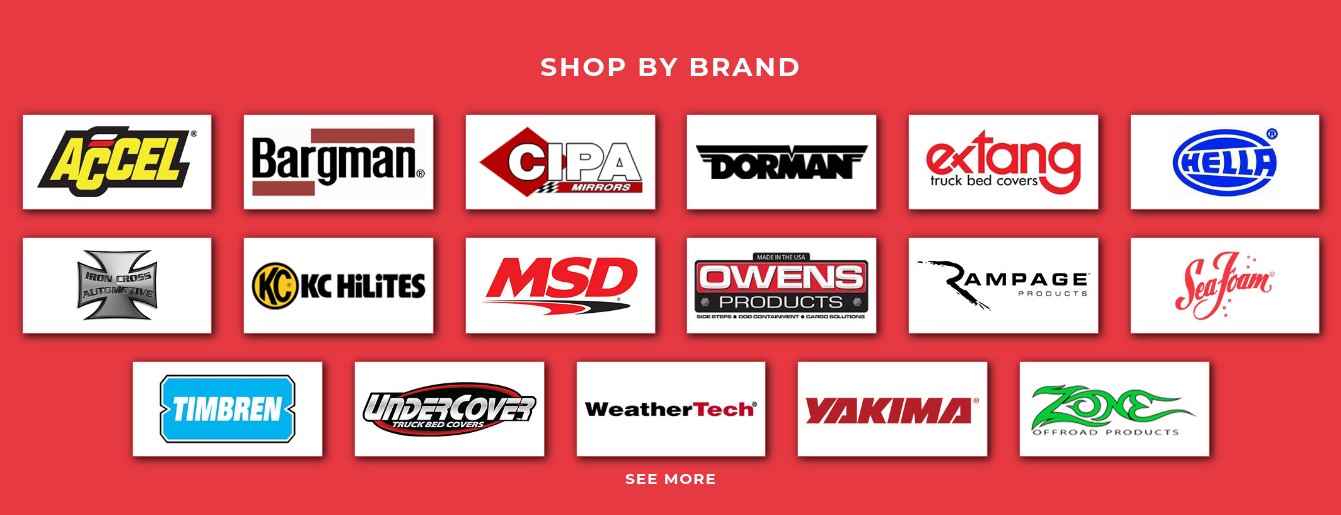


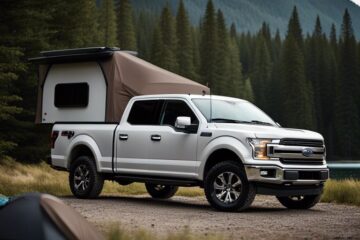
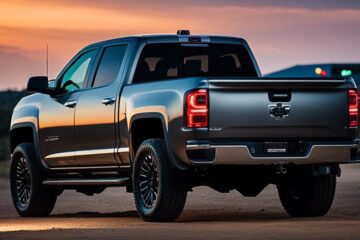
0 Comments